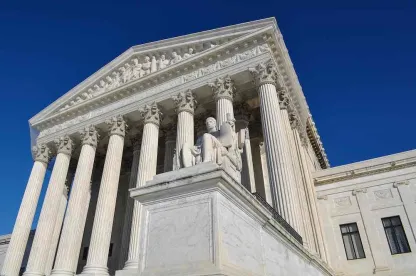Jane Cummings is blind and deaf, and she chiefly communicates using American Sign Language. When Cummings sought physical therapy from Premier Rehab Keller, P.L.L.C., she asked it to provide an American Sign Language interpreter at her appointments.
Premier refused, explaining that Cummings could communicate with the therapist using notes, lip-reading, or gesturing. Thereafter, Cummings sued Premier under the Rehabilitation Act and Affordable Care Act, which prohibit federal fund recipients from discriminating against covered individuals. She sought declaratory relief, injunctive relief, and compensatory damages.
The District Court dismissed Cummings’s complaint because “the only compensable injuries that Cummings alleged Premier caused were ‘humiliation, frustration, and emotional distress,” which are not recoverable in private Rehabilitation and Affordable Care Act suits. The Fifth Circuit reached the same conclusion as did the US Supreme Court.
The Rehabilitation and Affordable Care Act, the Court explained, is like a contract between the federal fund recipient and the government, in which the government conditions its fund offer on the recipient’s promise not to discriminate.
Thus, whether emotional distress damages are available under the statutes, turns on one question: “Would a prospective funding recipient, at the time it ‘engaged in the process of deciding whether [to] accept’ federal dollars, have been aware that it would face such liability? . . . If yes, then emotional distress damages are available; if no, they are not.”
The Rehabilitation and Affordable Care Acts are silent regarding emotional distress damages. But, according to the Court, it is “hornbook law” that emotional distress, like punitive damages, is generally not compensable in a breach of contract action. Thus, the Court explained, it cannot conclude that federal fund recipients agreed to subject themselves to emotional distress damages claims for Rehabilitation Act and Affordable Care Act violations. It follows, according to the Court, that such damages are not recoverable under those statutes. (Twenty years earlier, the Court employed the same contract analogy to conclude that punitive damages are not available to private Rehabilitation and Affordable Care Act plaintiffs. Barnes v. Gorman, 536 U. S. 181(2002)).
The case is Cummings v. Premier Rehab Keller, P.L.L.C. Justices John Roberts authored the Court’s opinion, in which Justices Thomas, Alito, Gorsuch, Kavanaugh, and Barrett joined. Justice Kavanaugh filed a concurring opinion, in which Justice Gorsuch joined. Justice Breyer filed a dissenting opinion, in which Justices Sotomayor and Kagan joined.



 />i
/>i
